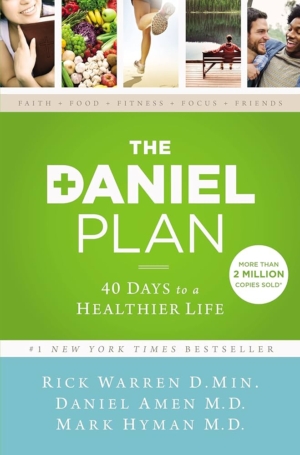The very fact that Robert H. Schuller’s Crystal Cathedral is now “Christ Cathedral”–home to Rome’s OC diocese–points to a degree of change which is absolutely unfathomable to those of us who lived through this tumultuous and exciting time. Robert Schuller–the great “possibility . . . Continue reading →
evangelicalism
Not To Worry. Christ Is Still Lord. Nothing Has Changed
Another Christian musician has announced that he has “deconstructed” his faith. Continue reading
Suicide By Theocracy
If American evangelicalism dies, suicide will be the cause of death listed on the official Coroner’s report. American evangelicalism will likely not die due to external persecution. Historically, persecution tends to strengthen the church. If it dies, it will die because it . . . Continue reading →
Ufilas Or ESS?
…Allow me to share a few quotes. As you read, I want you to ask yourself where, in the history of the church these quotes are found? “Nobody denies that the Father is somehow greater than the Son, not because of another . . . Continue reading →
More Thoughts About The PCA: Liberal v Conservative Is The Wrong Paradigm
I have had some interesting and illuminating responses to my analysis and critique of the anonymous “Open Letter” (OL) to the PCA published last week. Continue reading
Valentinus, Marcion, And Contemporary Christianity
In Defense Of The Bible Belt
One can imagine fewer complaints from the South if her critics held everyone over the fiery pit like one of Edwards’s unfortunate spiders, and did so with equal contempt. But there seems to be a bit of socio-theological dissonance at play. On . . . Continue reading →
On Leaving The Mainline: Some Friendly Advice To The Alliance Of Reformed Churches
Kathryn Post, writing for the Religion News Service (HT: Christianity Today), writes, “On New Year’s Day, 43 congregations of the Reformed Church in America (RCA) split from the national denomination, one of the oldest Protestant bodies in the United States, in part over theological differences regarding same-sex marriage and the ordination of LGBT clergy.” This move, she says, “follows the RCA General Synod’s October decision to adopt measures for ‘grace-filled separation’ with departing churches and to appoint a team to develop a restructuring plan for those that remain.” These 43 congregations (so far) have formed The Alliance of Reformed Churches. Continue reading →
Heidelcast For July 17, 2022: Every Tribe, Tongue, And Nation (8): First Head Of Doctrine (5)
In this episode Dr Clark continues his series on the Canons of Dort where we are looking at the First Head of Doctrine of the Canons of Dort, articles 12 and 13. The Synod was responding to the problem of assurance. The . . . Continue reading →
Warfield: Lewis Sperry Chafer’s Theology Is Like Fire And Water
Mr. Chafer is in the unfortunate and, one would think, very uncomfortable, condition of having two inconsistent systems of religion struggling together in his mind. He was bred an Evangelical, and, as a minister of the Presbyterian Church, South, stands committed to . . . Continue reading →
The Narcissism of Evangelical Latitudinarianism
This essay was written before I published Recovering the Reformed Confession (2008), which, remarkably and quite unexpectedly, remains in print. In it, I interacted with a book review published in Christianity Today which serves as a symbol of the way Pietists and modern evangelicals . . . Continue reading →
Beyond Fundamentalism And Feminism
Back in May 2007, Carl Trueman raised the problem of the pressures females feel in conservative evangelical and Reformed churches. This issue raises the question of how Reformed Christians ought to relate to the broader culture. How do we live in a . . . Continue reading →
On Churchless Evangelicals (Part 1)
I was once a churchless evangelical. As a young Christian I attended a medium-sized (three-hundred member) Southern Baptist congregation for a few years without joining. It was not really a problem. Of course they would like to have seen me baptized (as . . . Continue reading →
On Churchless Evangelicals (Part 3)
An HB Classic
So far, the case has not been terribly difficult or painful. However many evangelicals may be wandering in the churchless wilderness without any congregation whatsoever, there are few responsible evangelical theologians who, however much they may not wish to talk about the . . . Continue reading →
The Crystal Cathedral Isn’t What It Used To Be
Editor’s note: Since this essay was first published, the Crystal Cathedral really isn’t what it used to be. In 2019 it became Christ Cathedral, the seat of the bishop of Orange. § Christianity Today reports that the Crystal Cathedral is experiencing a . . . Continue reading →
Tebow, Evangelicals, And The Sabbath
The evangelicals in Denver and Colorado Springs are said to be quite excited about Tim Tebow’s immanent arrival to the Mile High city. He has been drafted by the Denver Broncos, and former Colorado Buffaloes football coach Bill McCartney says that Tim . . . Continue reading →
The Importance of Being More Than Earnest
Doctrine. Theology. For many evangelicals these words are as pleasant as the phrase, “impacted tooth!” That theology is irrelevant to Christian life has essentially become a received dogma. Nevertheless, as much as indifference about Christian truth reigns among evangelicals, to the same . . . Continue reading →
Why Evangelicals Cannot Be Trusted With The Bible
Carolyn Arends wants to give an argument for the benefits of God’s moral law, but she lacks the categories by which to do it. Her argument has only two categories: good/bad, and relationships. The title and subtitle of her essay should alarm . . . Continue reading →
Dare To Be On The Daniel Plan?
The song “Dare to Be a Daniel” is yet another reason to adopt Mr. Murray’s view that, in public worship, we should sing only God’s Word (I reached the same conclusion in Recovering the Reformed Confession).1 Not only is the song itself . . . Continue reading →
In John’s Latitudinarian Garage
I do not know what is in your garage, but from time to time mine has become pretty cluttered, and stuff has to be pitched. What we keep and what we pitch says something about us. People have theological garages, too, in . . . Continue reading →











